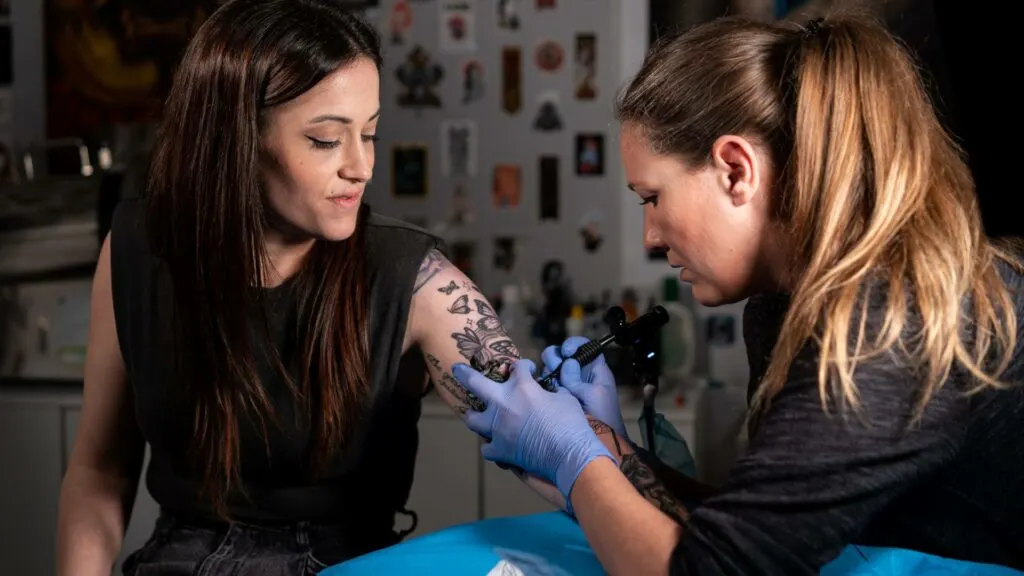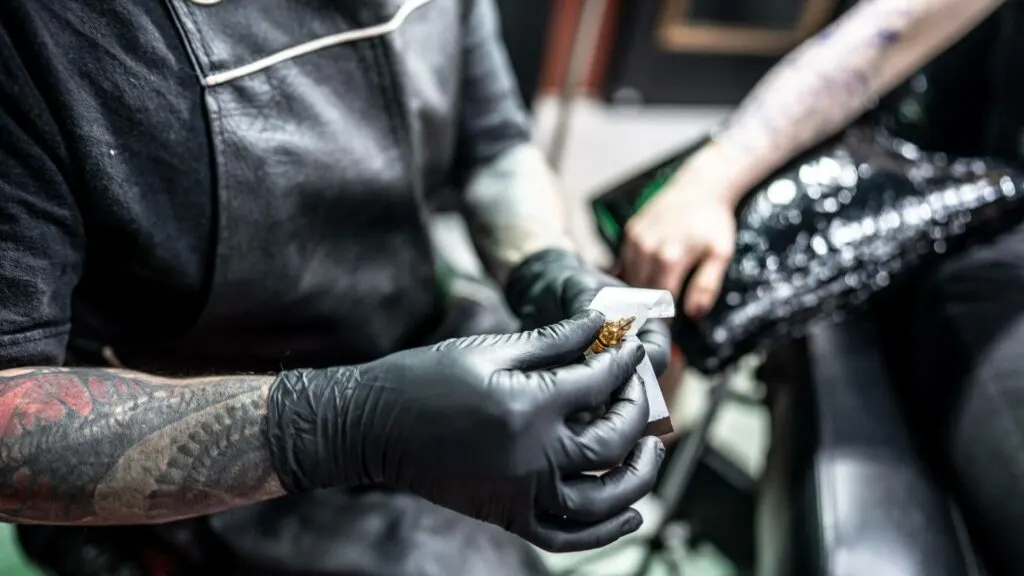Certainly, tattooing can indeed be a rewarding and fulfilling career for those who possess artistic flair and a passion for the craft. Getting into the tattoo industry requires skill and creativity, a deep understanding of safety protocols, and a dedication to customer service. This multifaceted career can provide an avenue for artists to express their talent while also allowing them to connect closely with their clients. Let’s delve into the intricacies of making a career in tattooing, the qualifications needed, and the potential challenges and rewards that come along with it.

1. You Need Apprenticeship Under an Experienced Professional
This vital step enables budding tattooists to learn the craft from an insider’s perspective, benefiting from the first-hand industry knowledge of a seasoned professional. During this stage, an apprentice learns how to use a stencil printer for tattoos to create intricate designs and other vital equipment in the trade. More importantly, an apprenticeship creates a platform for developing artistic abilities and mastering sterilization techniques, which are essential for ensuring client safety.
While honing skills in drawing and understanding the nuances of skin types, apprentices also absorb essential safety measures, hygiene protocols, and customer engagement techniques, all under the watchful eye of their mentor. The apprenticeship period, often lasting a couple of years, serves as a powerful foundation and stepping stone toward building a successful career in tattooing.
2. A Tattoo Artist Requires Strong Artistic Talent and Creativity
A successful tattoo artist must possess a blend of artistic talent and creativity. Artistic talent goes beyond drawing skills; it involves grasping design principles, color theory, and the intricacies of tattooing on human skin. It requires visualizing designs in three dimensions as they contour the body and executing them with precision.
Creativity sets an artist apart. It’s the ability to conceive original designs, interpret clients’ ideas uniquely, and exceed their expectations. In tattooing, creativity involves adapting and innovating within different styles staying current with trends while pushing boundaries. This strong artistic talent and boundless creativity breathe life into each unique tattoo, resonating with the client’s story.
3. Excellent Customer Service Skills are Paramount
Besides the artistry and technical skills, successful tattoo artists must excel in customer service. Building a strong rapport with clients is crucial for a positive experience. This involves active listening, effective communication for design options and aftercare instructions, and overall interaction professionalism.
Moreover, happy clients are crucial for building a strong reputation and attracting more business in social media and online reviews. A good tattoo artist knows that each client is not just a one-time customer but potentially a repeat client and someone who can refer others through word-of-mouth.

4. Strict Hygiene and Safety Protocols are a Must
Tattooing involves breaking the skin and exposing clients to potential risks of infection, making strict hygiene and safety protocols vital. A professional tattoo artist must follow all standard precautions when working with needles and equipment, including proper sterilization methods for reusable tools, using disposable items wherever possible, and maintaining cleanliness in the workspace.
Additionally, tattoo artists should be knowledgeable about bloodborne pathogens and how to prevent their spread, such as using protective equipment like gloves and disposable aprons. Following safety protocols protects clients and artists from potential exposure to diseases.
5. Tattooing Can be Physically Demanding
While a creative and rewarding career, tattooing can also pose significant physical demands on the artist. This profession requires long hours of sustained concentration and precision, often seated or hunched, which can lead to back pain, neck strain, and other musculoskeletal issues. Moreover, the continuous use of the tattoo machine can exert pressure on the hands and wrists, leading to repetitive stress injuries.
The constant machine vibration and the need for steady pressure can cause hand fatigue, cramps, and even conditions like carpal tunnel syndrome. Tattoo artists need to find out their ways to alleviate tension and manage pain. They also need to apply ergonomic techniques and take breaks between sessions to stretch the body for better health and longevity in the profession.
6. Basic Business Management knowledge is Essential
Talent and creativity are essential for a successful tattooing career. Basic business skills are also crucial. Tattoo artists must grasp accounting, pricing, marketing, and other small business aspects. Familiarity with licensing and health regulations is necessary for operating a tattoo studio.
Furthermore, artists must manage their time effectively, maintain organized records, and efficiently handle client bookings and appointments. A strong grasp of these business fundamentals can help artists sustain and grow their craft into a successful and sustainable career.
Becoming a successful tattoo artist requires technical expertise, artistic talent, creativity, customer service skills, business management knowledge, and a commitment to hygiene and safety. It demands dedication, hard work, and continuous learning. If you’re passionate about tattooing, it can be a fulfilling and rewarding career. Prioritize client satisfaction, invest in your skills, and stay true to your passion for this unique art form.

Jessi is the creative mind behind The Coffee Mom, a popular blog that combines parenting advice, travel tips, and a love for all things Disney. As a trusted Disney influencer and passionate storyteller, Jessi’s authentic insights and relatable content resonate with readers worldwide.
